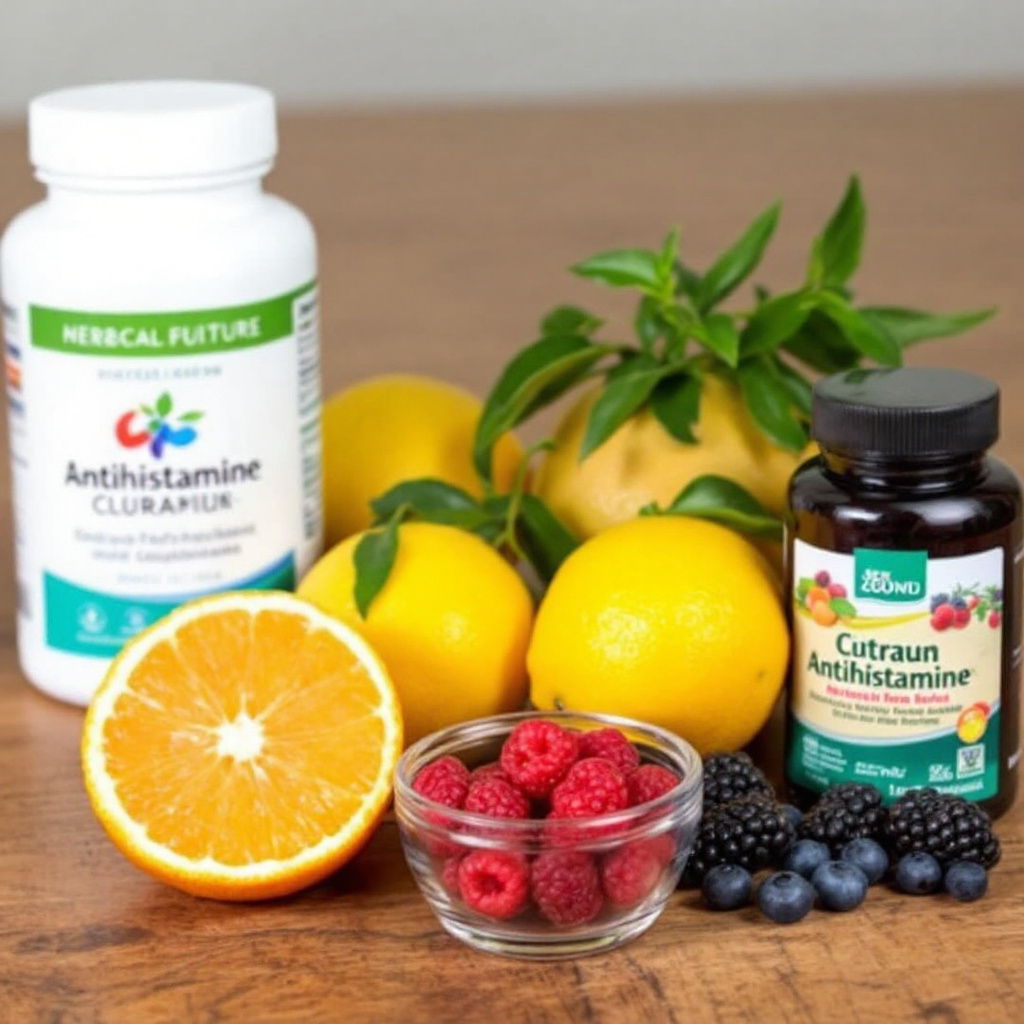Allergies can be frustrating, uncomfortable and sometimes even debilitating. While many people turn to over the counter (OTC) medications for relief, natural antihistamines are gaining popularity as a safer and side effect free alternative. Whether you are dealing with hay fever, skin rashes or food allergies, nature might just offer the relief you need.
What Are Natural Antihistamines?
Natural antihistamines are substances found in plants, foods and supplements that help reduce or block histamine the chemical responsible for allergic reactions. These natural compounds work similarly to synthetic antihistamines but often without causing drowsiness or other side effects.
How Do Natural Antihistamines Work?
When your immune system detects an allergen (like pollen or pet dander) it releases histamine which causes symptoms like:
- Sneezing
- Itchy eyes
- Runny nose
- Skin rashes
Natural antihistamines help by stabilizing mast cells (which release histamine) or by directly blocking histamine receptors in your body.
Top Natural Antihistamines
Here are some of the most effective natural antihistamines:
1. Quercetin
- Found in: Apples onions berries
- A powerful flavonoid that reduces histamine release
- Also has anti inflammatory properties
2. Vitamin C
- Found in: Citrus fruits bell peppers broccoli
- Acts as a natural antihistamine and boosts the immune system
3. Stinging Nettle (Urtica dioica)
- Used as a tea or supplement
- Reduces histamine levels in the body
- Effective for hay fever and seasonal allergies
4. Butterbur (Petasites hybridus)
- A herbal remedy used for migraines and allergies
- Acts like a leukotriene inhibitor reducing inflammation
5. Bromelain
- Found in: Pineapple
- An enzyme that helps reduce nasal swelling and improve breathing
6. Probiotics
- Found in: Yogurt kefir fermented foods
- Help balance gut bacteria and regulate immune response
Benefits of Natural Antihistamines
- Fewer side effects compared to synthetic drugs
- Support overall health and immunity
- Safe for long term use
- Often come with additional health benefits like anti inflammation detoxification etc.
When to Use Natural Antihistamines
You can try natural antihistamines if you:
- Prefer holistic or plant based remedies
- Experience drowsiness or side effects from OTC meds
- Want to boost your immune system naturally
- Are managing mild to moderate allergies
How to Use Them Safely
- Always start with low doses to check for any reactions
- Consult with a doctor if you are pregnant nursing or on other medications
- Choose high quality supplements free from additives or fillers
- Use consistently for best results
Who Should Avoid Natural Antihistamines?
- People with autoimmune disorders (some herbs may overstimulate the immune system)
- Those on blood thinners (like warfarin especially with quercetin or butterbur)
- Children and the elderly (only with medical advice)
Natural Antihistamines vs. OTC Medications
| Feature | Natural Antihistamines | Synthetic (OTC) Antihistamines |
|---|---|---|
| Side Effects | Minimal to none | Drowsiness, dry mouth, etc. |
| Long-term Use | Generally safe | Risky for long durations |
| Cost | Affordable | Moderate to expensive |
| Effectiveness | Moderate | Strong and fast-acting |
DIY Natural Antihistamine Tea Recipe
Ingredients:
- 1 tsp dried stinging nettle
- 1 tsp chamomile
- 1 slice fresh ginger
- 1 tsp honey
- 1 cup hot water
Instructions:
- Steep all ingredients in hot water for 5–7 minutes.
- Strain and add honey.
- Enjoy once or twice daily during allergy season.
Conclusion
Natural antihistamines provide a gentle holistic approach to allergy relief. They are ideal for those seeking alternative therapies or looking to reduce their dependence on pharmaceuticals. However, always consult with a healthcare professional before making major changes to your allergy treatment plan.
